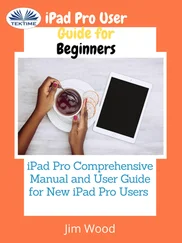Acknowledging the difficulties involved in changing the economic status quo should not cause us to give up the fight to create an economy that is more dynamic, more stable, more equitable and more environmentally sustainable than what we have had for the last three decades. Yes, changes are difficult, but, in the long run, when enough people fight for them, many ‘impossible’ things happen. Just remember: 200 years ago, many Americans thought it was totally unrealistic to argue for the abolition of slavery; 100 years ago, the British government put women in prison for asking for votes; fifty years ago, most of the founding fathers of today’s developing nations were being hunted down by the British and the French as ‘terrorists’.
As the Italian Marxist Antonio Gramsci said, we need to have pessimism of the intellect and optimism of the will.
Final Thoughts: Easier Than You Think
The 2008 global financial crisis has been a brutal reminder that we cannot leave our economy to professional economists and other ‘technocrats’. We should all get involved in its management – as active economic citizens.
Of course, there is ‘should’ and there is ‘can’. Many of us are physically too exhausted by our daily struggle for existence and mentally occupied with our own personal and financial affairs. The prospect of making the investments necessary to become an active economic citizen – learning economics and paying attention to what is going on in the economy – may seem daunting.
However, these investments are much easier to make than you might think. Economics is far more accessible than many economists would have you believe. Once you have some basic understanding of how the economy works, monitoring what is going on becomes a lot less demanding in terms of your time and attention. Like many other things in life – learning to ride a bicycle, learning a new language or learning to use your new tablet computer – being an active economic citizen gets easier over time, once you overcome the initial difficulties and keep practising it.
Please give it a try.
‘Economics: The User’s Guide’, by Ha-Joon Chang
August 8, 2014 5:55 pm
Review by John Sunyer
Ha-Joon Chang’s guide to the principles of economics is also a manifesto
Ha-Joon Chang’s guerrilla war against free-market orthodoxy continues. For too long, argues the South Korean economist, the public has been discouraged from engaging with his subject – and, as a consequence, from participating in some of the most important debates of our age. Today, unless you are good at maths and science, he writes in Economics: The User’s Guide , you won’t be able to understand economic literature. It is time for the rest of us to get involved.
Reassuringly, according to Chang, all one needs to make sense of the global economy via his book is a secondary education. This is good news for me because I’m out of practice: it’s been 10 years since I studied economics at school. The first section is a page-turning history, the second a call to arms about how to apply economics in the real world using simple, everyday examples. It’s a brilliant, yet sometimes annoying, book. Key terms are in bold – hundreds and hundreds of them – and italic summaries appear every few paragraphs.
Appropriately for a book that taps into the old-fashioned spirit of self-improvement, Economics: The User’s Guide is published in the UK by the recently revived Pelican imprint, originally founded in the 1930s to bring intelligent non-fiction to a mass reading public.
Chang also happens to be one of the few contemporary economists eager to revive the old-fashioned spirit of political economy. He rails against how economics has shifted from “the study of political management of the economy” to become a discipline that, over the past few decades, has increasingly seen itself as a hard science.
Elsewhere, he outlines the predominant schools of economic thought, drawing all sorts of connections between them. To highlight this, he offers a number of “cocktails made up of two to four different schools”. Some of these cocktails, Chang writes, are “like a Bloody Mary with a lot of Tabasco sauce, given the disagreements present. Some others . . . may taste like a Planter’s Punch, with different flavours complementing each other.”
They also come with a health warning: “On no account drink one ingredient,” he writes, which is “liable to lead to tunnel vision, arrogance and possibly brain death”. Hyperbole aside, the message is a plea to his colleagues to get boozy and adopt a more pluralistic approach. It’s entertaining stuff.
Chang favours measures to reduce inequality but he’s far from being an anti-capitalist. He isn’t too explicit but argues that policy makers will increasingly have to recognise that both governments and markets are fallible, and work out a synthesis of the two.
As with his previous book, 23 Things They Don’t Tell You About Capitalism (2010), references to pop culture proliferate. The film Django Unchained is used to explain the concept of “adaptive preferences”, and the “mind-blowing” The Matrix to explain “false consciousness”.
Chang’s lightness of touch makes often dry subject matter very readable. He lambasts the overdevelopment of the financial sector, mocking complicated (broken, it turned out) models that somehow calculated that the “chances of what happened in 2008 actually happening were equivalent to winning the lottery twenty-one or twenty-two times in a row”. The 2008 crash is mentioned again and again, to prove Chang’s point that the experts don’t always know best.
Despite many high points, the book sometimes has an air of ticking off important subjects. And for all Chang’s insistence that his aim is “to show the reader how to think, not what to think, about the economy”, much of it reads like a manifesto. He frequently sticks the boot in and his language is loaded: free-market economists “wax lyrical” while “economic ‘facts’” appear encased in quotes.
Still, he does enough to arouse your interest without fully satisfying it, which is an entirely good thing.
Economics: The User's Guide by Ha-Joon Chang – Guardian review
Are you perfectly selfish? This page-turning exploration of why economics is always politics is a radical explanation of … everything
Zoe Williams
The Guardian, Thursday 29 May 2014 07.29 BST
It is a mark of where we are in our political discourse that even to say "neoclassical economics is not the only school" seems radical. This is where Ha-Joon Chang starts, in a book that is more sober and less effervescent than his bestselling 23 Things They Don't Tell You About Capitalism , but is just as page-turning.
Since no single economic theory has beaten the others, it follows, Chang writes, that there is no objective truth on which every economist is agreed. Economics can never be a science in the way that physics is; it cannot reach a consensus on its fundamental questions, let alone what the answers are. This isn't some extended handwringing, a trashing of his discipline dressed up as a mea culpa. Chang isn't looking for a formula: fundamentally, he argues, economics is politics. As such, we shouldn't be thinking in terms of an ideal answer – the discussion should never close.
If there is a sense in which economics has "failed", Chang argues, it is not because it should have "predicted" the crash and the disasters of the last seven years, nor for those Krugmanianreasons that range the state against the market, regulation against self-interest, cooperation against moral hazard. Rather, we are witnessing a failure of plurality. Our current landscape has been created by the acceptance of a few core principles – the individual as perfectly selfish, perfectly rational, able to create perfect markets by acting in her own interests; we have ignored plausible competing theories and have suffered for it.
Читать дальше












